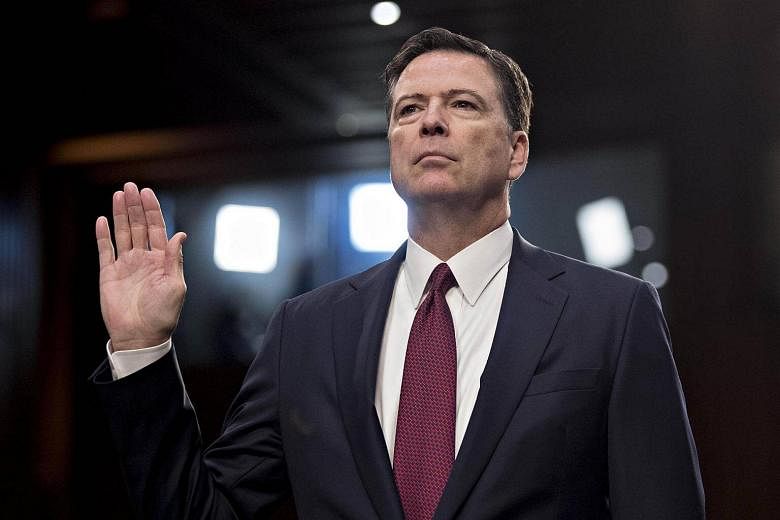WASHINGTON • US President Donald Trump and his defenders have responded to Mr James Comey's testimony to a Senate panel - in which the former FBI chief revealed that he orchestrated the disclosure of his account of his discussions with the President - by denouncing Mr Comey as "a leaker". Here's a look at the implications of the label:
WHAT IS A LEAK?
The word "leak" has no official legal definition. But it usually refers to the act of providing confidential information to the public in a surreptitious way and without official authorisation.
WHAT IS NOT A LEAK?
Sometimes former officials, without authorisation, publish memoirs recounting high-level internal conversations, or officials blurt out secret information at a congressional hearing. In those cases, the disclosure is not clandestine and so is not a leak.
Other times, reporters publish previously confidential information and attribute it to officials who spoke anonymously, but behind the scenes those officials had received permission to talk. Such a disclosure could be described as a "plant" because there was an official policy decision to put out that information.
IS LEAKING THE SAME AS WHISTLE-BLOWING?
Whistle-blowing is a subset of leaks about waste, fraud, illegality, abuse of power or some other form of official or corporate wrongdoing. Defenders and critics of leakers spar over whether any particular disclosure meets that higher moral standard.
ARE LEAKS ILLEGAL UNDER U.S. LAWS?
US federal law criminalises the leaking of certain types of information. The Espionage Act makes it a felony to disclose, to someone not authorised to receive it, information related to national defence that could be used to harm the US or aid a foreign adversary.
ARE OFFICIALS LEGALLY BOUND NOT TO DISCLOSE THEIR CONVERSATIONS WITH THE PRESIDENT?
No. Executive privilege is a constitutional doctrine that presidents may assert to block Congress from obtaining information about their confidential communications with other executive branch officials related to their constitutional duties.
Separately, under attorney-client privilege, current or former lawyers for a president have an ethical duty to keep their confidential communications secret, and they could face a bar complaint for disclosing them.
But neither of those principles creates a legal duty for former officials to stay silent about their recollections of their talks with the president.
NYTIMES

